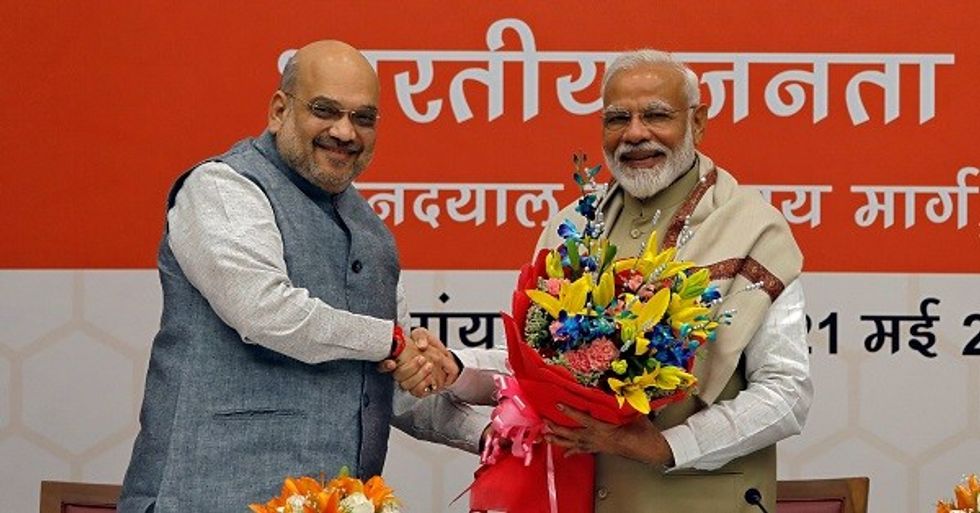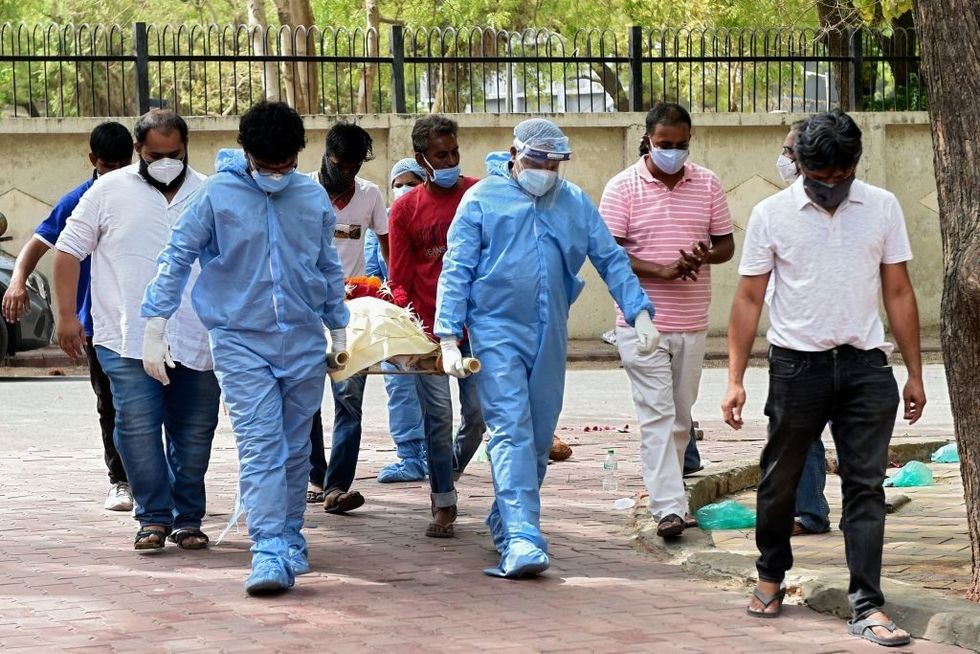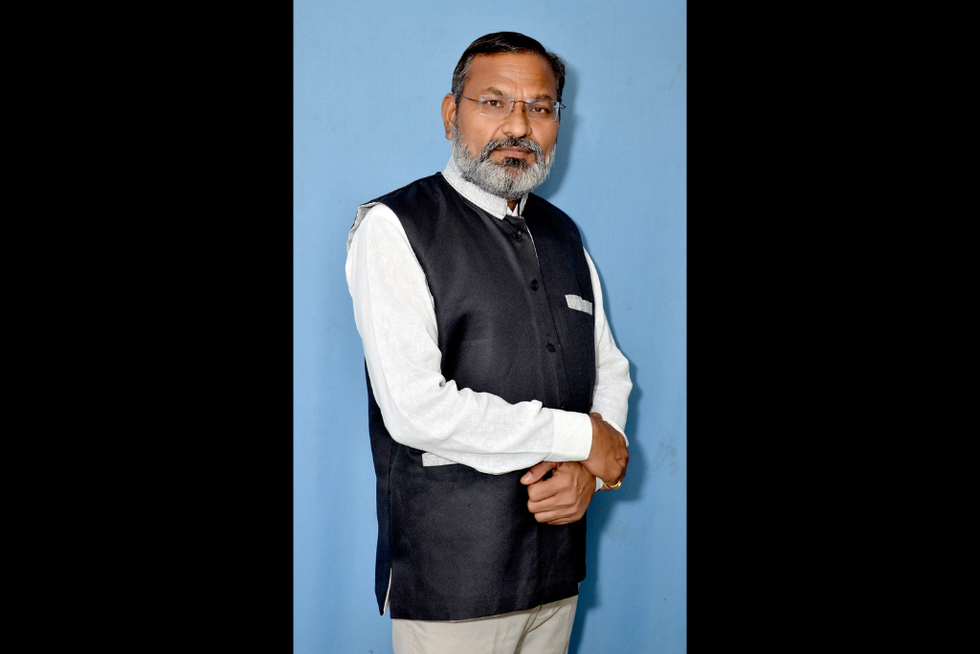THE Aam Aadmi Party (AAP) has always been an ambitious outfit. After having done well in its first-ever election in Delhi in 2013, the party of Arvind Kejriwal came to power but thereafter, it failed to keep up the momentum. The party could not stay in power in Delhi for long and also did miserably in the 2014 Lok Sabha election. However, as people started to write off the party which vowed to fight corruption, the AAP made a solid comeback in the 2020 elections in Delhi. The party, however, has failed to expand its base beyond the national capital despite contesting in other states. On Monday (14), Kejriwal announced that AAP will contest in all 182 seats in Gujarat in next year’s Assembly elections. The party had contested the state elections in 2017 as well but failed to win any seat. Will its fate see a change this time?
Eastern Eye spoke to Rameshbhai Nabhani, a member of AAP Gujarat state committee and one of the party’s frontline organisers based in North Gujarat. An advocate by profession who lives in Palanpur in Banaskantha district of North Gujarat, Nabhani spoke on a range of issues about AAP’s plan for next year’s polls in Gujarat.
Aam Aadmi Party Gujarat state organisational member Rameshbhai Nabhani (Credit: Rameshbhai Nabhani)
Here is what he told EE over phone:
EE: Was there no formal AAP office in Gujarat before Delhi Chief Minister Arvind Kejriwal went to the state on June 14 and launched the state headquarters or is it a new beginning for the party?
Nabhani: Yes, Kejriwal came to the state to launch the party headquarters. But it was also a way to showcase the fact that the AAP is a much stronger force now in Gujarat than what it was earlier. We will contest in all 182 seats this time. We have made our organisation much strong and it will deliver next year.
EE: What makes you feel that the AAP is now a much stronger force? In 2017, the party had a no show in the Assembly elections.
Nabhani: It may look like apparently that the AAP is a weak player in Gujarat but if you see its results in various district elections in the state, you will find that it has been winning some seats almost everywhere. Starting from winning 27 seats in this year’s Surat municipal corporation elections, the AAP has made significant gains in many other civic polls and that is an encouraging trend.
EE: So in a way, you are saying that the AAP’s good performance in the local polls makes you confident about its organisation and that it will deliver in the state elections next year?
Nabhani: Truly. We have worked hard on our city-level organisations. In times of the pandemic, we have reached out to people in more numbers and that has made people trust in us more. We have focused on small works and going from door to door to speak with people. This has helped us in improving our base.
EE: The AAP will have to fight not one but two big forces in the state polls in the form of the ruling Bharatiya Janata Party (BJP) and Opposition Congress which did well last time. Are you confident that the mission is achievable?
Nabhani: While the AAP is gaining trust of more and more people, the Congress is out of the mind of the common Gujaratis. People are also upset with the BJP, thanks to the Covid situation and rising prices. So, we have an advantage for sure.
EE: What are the main areas that you think the AAP could do well in the 2022 Assembly polls?
Nabhani: We are particularly confident about doing well in South Gujarat. In places like Surat, Rajkot and Vadodara, we are sure of doing well. But having said that, it is not that we can’t do it in the northern parts, like Mahesana.

EE: Kejriwal said during his rally in Ahmedabad that Gujarat is not getting the due it deserves. He said in times of the pandemic, the state received an orphan-like treatment. He is saying it when the fact is the prime minister and home minister of the country belong to Gujarat? Will people buy this claim of the AAP leader?
Nabhani: What you are saying is certainly not incorrect. Prime Minister Modi and Home Minister Amit Shah definitely belong to Gujarat but I am afraid that they have run out of agenda now. The government at the Centre only has agenda like Hindutva and Mandir but those are not going to deliver in elections any more. The struggle of Gujarat is not reaching them anymore. The state leadership has also failed to play its role.

EE: Will anti-incumbency against the BJP, which is ruling Gujarat for more than two decades now, be the AAP’s main weapon?
Nabhani: No, we are not banking on anti-incumbency but our own work for the people. As we speak, our workers are working hard to reach out to people in these tough times. We have not rested once the second wave broke out and are helping people with oxygen cylinders and hospital beds. This is how we want to win the people’s trust and not just bank on anti-incumbency against another party’s government. Our agenda is our work.
EE: Why did the AAP fare so badly in the 2017 elections in Gujarat?
Nabhani: The party was still young and I acknowledge that we were not ready yet then.
EE: If the AAP wins the Gujarat elections, will it project a chief ministerial face?
Nabhani: 'Janata' (people) is our face. Once we do well in the elections, those issues will not be difficult to address.


















 Michael Gove
Michael Gove Jeremy Hunt
Jeremy Hunt
